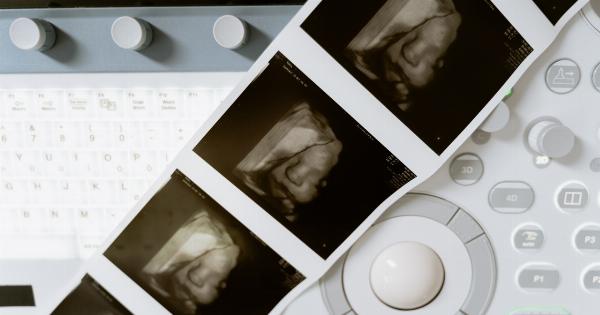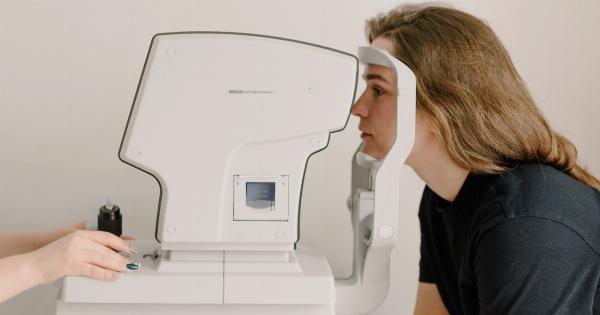Ultrasound imaging, also called sonography, is a noninvasive medical procedure that uses high-frequency sound waves to create images of the body’s internal organs, tissues, and structures.
This imaging technology is often used during pregnancy to monitor the growth and development of the fetus, determine the due date, and detect any abnormalities. However, there are concerns among pregnant women and their healthcare providers about the safety of ultrasound imaging. Is it safe? Let’s find out.
How Does Ultrasound Imaging Work?
Ultrasound imaging works by sending high-frequency sound waves into the body and measuring how they bounce back. These sound waves are too high-pitched to be heard by the human ear and are harmless to the body.
The ultrasound machine then uses the information from the echoes to create images of the internal structures, which are displayed on a monitor.
Is Ultrasound Imaging Safe?
The short answer is: yes, ultrasound imaging is generally considered safe for pregnant women and their fetuses.
Millions of women around the world undergo ultrasound exams during their pregnancy every year, and there is no evidence to suggest that the procedure is harmful. Ultrasound imaging does not use ionizing radiation, which is known to be harmful to the body.
However, there are some concerns regarding the safety of ultrasound imaging that need to be addressed. One concern is the possibility of the procedure heating up the body’s tissues, which could potentially harm the fetus.
Another concern is the possible effects of the sound waves on the fetal brain and nervous system.
How Much Ultrasound Imaging is Recommended?
The American College of Obstetricians and Gynecologists (ACOG) recommends that pregnant women undergo at least one ultrasound examination during their pregnancy, usually between 18 and 22 weeks.
This ultrasound is used to check the baby’s anatomy, growth, and development. Additional ultrasound exams may be recommended if there are concerns about the baby’s health or if the due date needs to be more accurately determined.
It’s worth noting that while ultrasound imaging is generally considered safe, there is no evidence to suggest that routine ultrasound exams are necessary for all pregnant women.
Some healthcare providers may recommend additional ultrasound exams as part of their standard prenatal care, while others may only recommend them if there are concerns about the baby’s health or if the due date needs to be more accurately determined.
What are the Risks of Ultrasound Imaging?
As mentioned earlier, ultrasound imaging is generally considered safe for pregnant women and their fetuses. However, there are some risks associated with the procedure that are worth mentioning:.
- Heating: While ultrasound imaging does not use ionizing radiation, there is a risk that the sound waves could heat up the body’s tissues, especially in the first trimester when the fetus is still developing. However, the amount of heat produced by ultrasound imaging is usually not enough to cause harm.
- Cavitation: There is also a concern that the sound waves from ultrasound imaging could cause tiny bubbles (cavitation) to form in the tissues, which could potentially harm the fetus. However, this is a very rare occurrence and is unlikely to happen during a routine ultrasound exam.
- Overuse: As mentioned earlier, there is no evidence to suggest that routine ultrasound exams are necessary for all pregnant women. However, some healthcare providers may recommend additional ultrasound exams as part of their standard prenatal care. Overusing ultrasound imaging could potentially increase the risk of harm to the fetus.
What Should Pregnant Women Do?
If you’re pregnant and concerned about the safety of ultrasound imaging, it’s important to talk to your healthcare provider.
They can help you weigh the risks and benefits of the procedure and determine whether additional ultrasound exams are necessary. You should also make sure that your ultrasound provider is certified and experienced in performing ultrasound exams on pregnant women.
It’s worth noting that ultrasound imaging is just one tool that healthcare providers use to monitor the health and development of the fetus. Other tests, such as blood tests and genetic screenings, may also be recommended during your pregnancy.
Conclusion
In conclusion, ultrasound imaging is generally considered safe for pregnant women and their fetuses.
Millions of women around the world undergo ultrasound exams during their pregnancy every year, and there is no evidence to suggest that the procedure is harmful. However, there are some risks associated with the procedure, such as heating and overuse, that need to be taken into consideration.
Pregnant women should talk to their healthcare provider about the risks and benefits of ultrasound imaging and ensure that their ultrasound provider is certified and experienced in performing ultrasound exams on pregnant women.






























